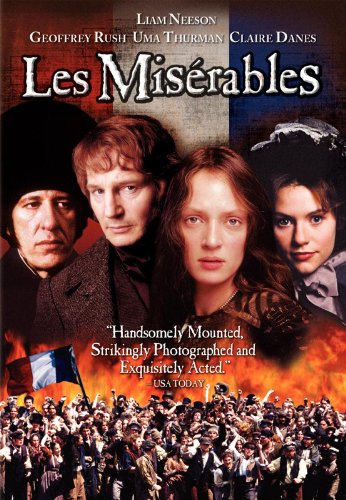All Nonfiction
- Bullying
- Books
- Academic
- Author Interviews
- Celebrity interviews
- College Articles
- College Essays
- Educator of the Year
- Heroes
- Interviews
- Memoir
- Personal Experience
- Sports
- Travel & Culture
All Opinions
- Bullying
- Current Events / Politics
- Discrimination
- Drugs / Alcohol / Smoking
- Entertainment / Celebrities
- Environment
- Love / Relationships
- Movies / Music / TV
- Pop Culture / Trends
- School / College
- Social Issues / Civics
- Spirituality / Religion
- Sports / Hobbies
All Hot Topics
- Bullying
- Community Service
- Environment
- Health
- Letters to the Editor
- Pride & Prejudice
- What Matters
- Back
Summer Guide
- Program Links
- Program Reviews
- Back
College Guide
- College Links
- College Reviews
- College Essays
- College Articles
- Back
Les Miserables
The French Revolution in the mid Nineteenth century brought forth an enormous invention of Les Misérables. No other story describes it better than Victor Hugo, who created the novel in 1862. Shortly after came a more vivid image, Les Misérables, the Broadway musical. It introduced a more emotional, clear image, which brings their thoughts and poor hymns of their deaths into your very soul.
On December 25, 2012 Les Misérables was opened to the crowd in the movie theatres. It was the most spectacular story truly brought to life. Tom Hooper directed this astonishing movie. It could not have been directed any better. It is absolutely astonishing to hear that the singing throughout the movie was all live, not recorded. This brought more emotion into the character’s eyes. I am even surprised by how much singing there was. Being a movie from Hollywood, I expected fewer songs and more lines, but this certainly was not the case for Les Miz. Much of it was music, which brought understanding and made the story more vibrant. Even the characters were chosen exquisitely. They brought out Victor Hugo’s words into reality.
This novel introduces the life of a slave, Jean Valjean, played by Hugh Jackman. The antagonist of the story is Javert, played by Russell Crowe. Once Jean Valjean escapes this prison, he finds refuge in a church, where the Bishop Myriel opens his arms wide to Valjean. He then decides to steal from the church and the bishop forgives him yet again, and he decides to make a new living of which everyone will benefit from. He becomes the mayor of the city, Montreil-sure-mer and a factory owner. Meanwhile, Fantine, a factory worker tries to earn money for her daughter, Cosette. She is fired for hiding this secret and becomes a prostitute, where Anne Hathaway sings, “I Dreamed a Dream”, in the most captivating and emotional song in the movie. Valjean comes to save her for the sake of her child. On her death bed, Valjean promises to raise her daughter, Cosette, as his own. Briefly after, Javert discovers that Jean Valjean was the slave that escaped, 24601. Valjean then finds Cosette and takes her far away from the city and educates her as his own child. Marius, part of the French revolution sees Cosette (Amanda Seyfried) and fall in love with each other within the first sight. However, Marius’s best friend, Éponine (Samantha barks) is desperately in love with Marius (Eddie Redmayne), in which she dies saving his life in the revolution. Her famous song is “On My Own”, dedicated to Marius. While the war is going on, Valjean realizes that Cosette and Marius love each other. He then goes in search to find him. Marius is then shot, and Valjean saves him form the brutal battle and saves his life. Valjean sings “Bring Him Home” throughout the scene. The song was angelic and meaningful sung by Jack Hughman. However, he seemed to miss a few notes throughout the song. Valjean, who is continuously searched by Javert, spares Javert’s life various times. Javert simply cannot understand this and suicides himself. His intensity during the movie was strong, but a bit more passion was needed into his singing.
In the end, Cosette and Marius marry. While her father is in a convent dying, they run to him. He gives her a letter explaining his real life and Cosette’s real background. He then dies and is taken by Fantine. They conclude learning that, “To love another person is to see the face of God.”
This movie is not only about the lives of these characters surviving the revolution, but about the revolution itself as well. Freedom, love, and liberty are emphasized in the movie. It teaches a moral lesson and a history lesson in life. The movie was phenomenal and inspiring in every way. The character brought the book to life and made the song in every heart both darken and stay alive. The singing was breathtaking as well. It absolutely met my expectations and even went farther.
Similar Articles
JOIN THE DISCUSSION
This article has 6 comments.


29 articles 11 photos 189 comments
Favorite Quote:
-There are more things in heaven and earth than are dreamt of in your philosophy. (Shakespeare, Hamlet)